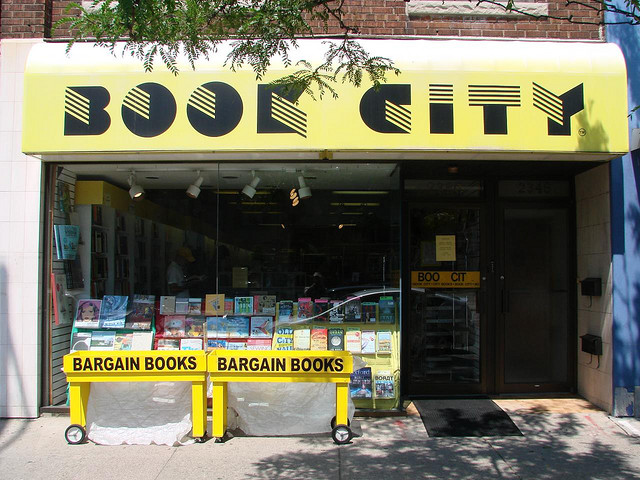Book City’s “flagship” store in the Annex is holding a wake for itself on Monday after 37 years. It joins other “locals” like Britnell’s, This Ain’t the Rosedale Library, Nicholas Hoare. They were neighbourhood hangouts, like pubs and bars, which Toronto has a spotty record creating. To fill in, we used cafés, bistros and bookstores. The staff were like the bartender and everybody knew your name. Even if they didn’t, you could hang out and feel at home.
They leave us each with our memories. I once had a loud row with them; they’d postponed paying bills to smaller Canadian publishers so couldn’t stock a recent book of mine. We patched it up but a year later, with another book coming, I saw their window was smashed. When I inquired, they said they had just assumed it was me with a pre-publication announcement.
I even had a near fight there. It was over NDP politics (this being the Annex) with a party loyalist. Frank magazine somehow heard about it and described “the uniped Salutin” — I was on crutches with a broken leg — “backed up against a bin of his remaindered doorstoppers.” I don’t think Book City ever actually had to employ a bouncer. Frank, by the way, is back in business, as good (or revolting) as ever.
The Big Box versions, like Indigo further along Bloor St., still survive though they have problems, too. They try to create that local bookstore mood, but it feels bogus, like visiting the Epcot Centre at Disney World to experience Italy.
The attempt is sincere but after a lot of heavy mental lifting I’ve decided it fails due to the absence of the patron, the proprietor, which makes a café or Book City feel genuine. You know they often spend more time there than at their own homes — so it feels like home. This goes for staff, too, who can function as avatars for the boss. There are knowledgeable employees at Indigo but what undermines them is those tablefuls of “Heather’s Picks.” You’re aware Heather (Reisman, Indigo CEO) is rarely around, so when her picks overshadow those of staff on-site, it undercuts the whole effort.
Same thing with Starbucks, which also tries to feel comfy and local. The corporate presence there always looms above your hard-trying baristas. Think of waiters at real cafés, they’re often estimable in their own right, they act “as if they own the place,” which can occur when the actual owner is around, wiping tables or sitting at the cash looking doomed. In Book City, that’d be the harried presence of Frans Donker, who built a modest collection of Book Cities, some of which still roll along. He and his staff inhabited basically the same playing field, unlike Reisman who is off in the corporate/philanthropic stratosphere.
(I’m looking forward to the Canadian remake of You’ve Got Mail — corporate titan devours local bookshoppe — with Tom Hanks as Heather Reisman and Meg Ryan as Frans Donker. “I was hoping it’d be you,” says Donker.)
But all bookstores, big and small, face the tech challenge. Books as we know them won’t be around forever, even if it used to seem they had and would. The impulses that produced books — creative, explanatory, narrative — will persist. But before books as we know them (printed, with covers), there was a manuscript tradition and before that the oral tradition. Books seemed forever, for about 400 years, an era now known as the Gutenberg parenthesis.
And it’s not as though books don’t have a downside, despite their overwhelmingly positive, er, press. Books are isolating, unidirectional, anti-social. Whatever replaces them may be more democratic, interactive, transient, unauthoritarian. Readers and authors may feel free to change what were once untouchable classics the way gamers “modify” online games. There’ll still be a written tradition when print is mainly found in museums (if you can find any museums). At least we know there’ll be a future for the written and books, unlike the case with transformations affecting the environment.
“The old is dying and the new cannot be born,” wrote Antonio Gramsci about capitalism. “In this interregnum a great variety of morbid symptoms appear.” So the news overall is hopeful. It’s just so uncomfortable living in the interregnum.
This article was first published in the Toronto Star.
Photo: jaleal/flickr




